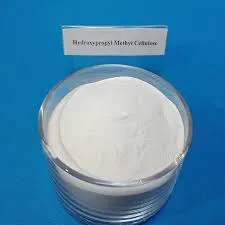
Nov . 24, 2024 13:48 Back to list
hydroxyéthyl cellulose
The Versatile Applications of Hydroxyethyl Cellulose
Hydroxyethyl cellulose (HEC) is a non-ionic, water-soluble polymer derived from cellulose, widely utilized in various industries due to its unique properties and versatility. As a derivative of cellulose, HEC retains the natural advantages of this polymer, such as biodegradability and low toxicity, making it an environmentally friendly choice for numerous applications.
The Versatile Applications of Hydroxyethyl Cellulose
In the realm of personal care and cosmetics, hydroxyethyl cellulose plays a pivotal role as a thickener and stabilizer. Its ability to increase viscosity without altering transparency makes it an ideal ingredient in products such as shampoos, conditioners, creams, and lotions. Additionally, HEC possesses film-forming properties that can provide a protective barrier on the skin, enhancing the skin’s moisture retention and softness. The gentle nature of hydroxyethyl cellulose makes it suitable for sensitive skin formulations, further broadening its application in the cosmetic industry.
hydroxyéthyl cellulose

Pharmaceutical formulations also benefit from the inclusion of hydroxyethyl cellulose. Its use as a binder and thickening agent in tablets and gels enhances the controlled release of active ingredients, ensuring a consistent therapeutic effect. HEC is particularly valuable in creating hydrophilic matrices for drug delivery systems, enabling sustained release over time and improving patient compliance. Moreover, its biocompatibility makes HEC suitable for various biomedical applications, including wound dressings and hydrogels.
In the food industry, hydroxyethyl cellulose is employed as a food additive, primarily as a thickener, stabilizer, and emulsifier. It helps improve the texture and viscosity of sauces, dressings, and dairy products while enhancing mouthfeel and overall sensory qualities. As a plant-based thickening agent, HEC aligns well with the growing consumer preference for natural ingredients in food products.
Another area where hydroxyethyl cellulose is making a significant impact is in adhesive formulations. HEC enhances the performance of adhesives by improving their viscosity and spreadability. This property is particularly useful in the manufacturing of tape, labels, and packaging materials where a strong yet flexible bond is essential.
In conclusion, hydroxyethyl cellulose stands out as a versatile and valuable ingredient across various industries, from construction and personal care to pharmaceuticals, food, and adhesives. Its unique properties—biodegradability, non-toxicity, and excellent thickening ability—position it as a crucial component in modern formulations. As industries continue to seek sustainable and effective solutions, the demand for hydroxyethyl cellulose is poised to grow, highlighting its importance in a wide range of applications.
-
Versatile Hpmc Uses in Different Industries
NewsJun.19,2025
-
Redispersible Powder's Role in Enhancing Durability of Construction Products
NewsJun.19,2025
-
Hydroxyethyl Cellulose Applications Driving Green Industrial Processes
NewsJun.19,2025
-
Exploring Different Redispersible Polymer Powder
NewsJun.19,2025
-
Choosing the Right Mortar Bonding Agent
NewsJun.19,2025
-
Applications and Significance of China Hpmc in Modern Industries
NewsJun.19,2025







